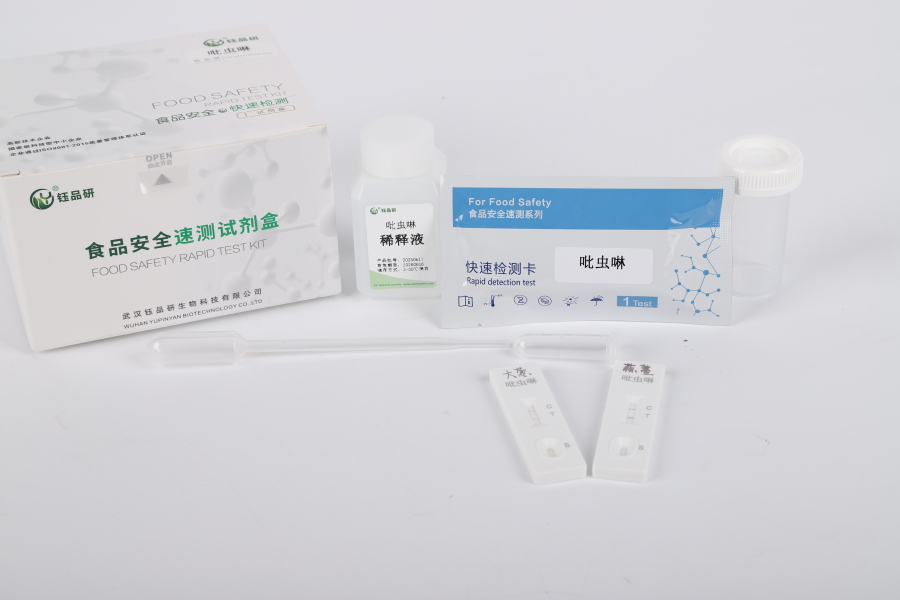With the improvement of people's living standards, more and more attention is paid to "safety on the tip of the tongue". As an important part of the daily diet, the problem of pesticide residues of fruits and vegetables has always been the focus of consumers' attention. How to build a whole chain protection net from the source to the end point to achieve "zero hidden dangers of pesticide residues" has become an urgent issue to be solved in the industry. Wuhan Yupinyan Bio has been deeply involved in the field of food safety testing for many years, combined with industry practice experience, starting from multiple links, to provide a systematic solution for the treatment of pesticide residues of fruits and vegetables.
planting link: source control is the key. In traditional planting, pesticide abuse, improper dosage and other problems can easily lead to excessive pesticide residues. The solution needs to start from the scientific planting concept: promote biological control technology, such as introducing natural enemy insects and using plant-derived pesticides to reduce dependence on chemical pesticides; establish a pesticide use record system, strictly control the application interval, and ensure that agricultural products are reduced to a safe range before they go on the market.
Harvesting and pretreatment: The timing and method of harvesting directly affect the status of pesticide residues. Early picking may lead to immature fruits, and subsequent transportation is vulnerable to disease pollution, but increase the risk of pesticide residues; late harvesting may lead to the accumulation of pesticide residues due to changes in plant metabolism. Precise harvesting standards need to be formulated according to the types of fruits and vegetables, and mechanical-assisted harvesting is used to reduce fruit damage. At the same time, low-temperature pretreatment inhibits respiration and delays the change of pesticide residues.
transportation and warehousing: Environmental control during transportation is the guarantee for the stability of pesticide residues. High temperature and humidity can accelerate the respiration of fruits and vegetables, resulting in changes in the decomposition products of pesticide residues; extrusion and collision may cause fruit damage, increase the risk of microbial growth, and indirectly affect the level of pesticide residues. Therefore, it is necessary to build a whole cold chain logistics system, control the temperature and humidity in an appropriate range, use buffer packaging to reduce mechanical damage, and regularly clean and disinfect the transportation vehicles to reduce secondary pollution.
Market supervision and rapid testing: Even if all links are strictly controlled, end point testing is still required as a "safety valve". Traditional testing methods take a long time and are difficult to meet the needs of the market for rapid response. The rapid detection technology developed by Wuhan Yupinyan Bio can complete the screening of agricultural residues within 10-30 minutes through colloidal gold immunochromatography, enzyme inhibition rate method and other means, with an accuracy rate of more than 95%. Deploy portable detection equipment in farmers' markets, supermarkets and other scenes to realize the normalization of sampling inspections, timely discovery and interception of agricultural residues exceeding the standard products, and build a security line from the consumer side.
From the field to the table, the treatment of agricultural residues in fruits and vegetables is a "whole chain battle". Wuhan Yupinyan Bio takes technological innovation as the core. Through multi-link collaborative prevention and control, combined with accurate detection methods, it helps to achieve the goal of "zero hidden dangers of agricultural residues", so that consumers can eat with confidence and make industrial development more confident.


